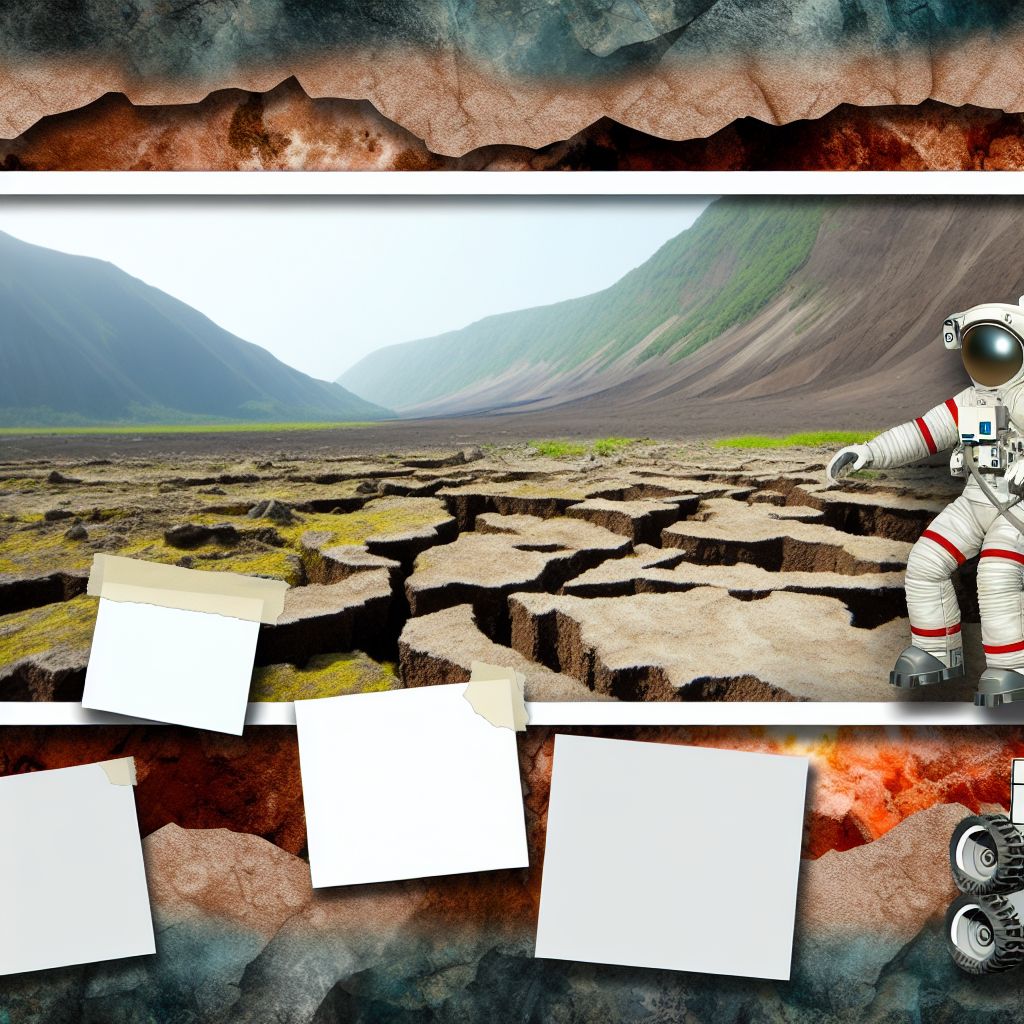Deutsch: Tektonik / Español: Tectónica / Português: Tectônica / Français: Tectonique / Italiano: Tettonica /
In the Space industry context, tectonics refers to the study and analysis of the structure, properties, and processes affecting the crusts of planets and moons, extending the principles of Earth's plate tectonics to other Celestial bodies. This field, often termed "comparative planetology" when discussing tectonics beyond Earth, investigates the geological activity, such as the movement of surface plates, volcanic activity, and formation of geological features, on planets and moons within our solar System and beyond.
Description

Space tectonics explores the dynamics of planetary crusts and their impact on the geology and geomorphology of celestial bodies. It includes the study of stress and Strain within planetary crusts, mechanisms driving tectonic movements, and the resultant features like rift valleys, mountains, faults, and plateaus. Understanding tectonics in space is crucial for comprehending the geologic history, internal structures, and potential Habitability of planets and moons.
Application Areas
- Planetary Exploration: Missions to Mars, Venus, the Moon, and other celestial bodies aim to gather data on their surface geology and internal processes to understand their tectonic activities.
- Astrobiology: Investigating tectonic activity helps in assessing the potential for life on other planets by understanding past and present geologic conditions that might Support Liquid Water and a stable Climate.
- Resource Identification: Tectonic studies can identify regions with potential resources, such as water ice or minerals, which could support future human exploration and Colonization.
Risks
- Mission Planning: Understanding the tectonic activity of a destination is essential for safely landing Spacecraft and deploying rovers or landers, as tectonic features can present hazards.
- Data Interpretation: Misinterpretation of tectonic features can lead to incorrect conclusions about a planet's geologic history and evolution.
Examples
- Mars: The Discovery of features such as Valles Marineris, a vast canyon system, suggests past tectonic activity, while InSight mission studies Marsquakes to understand current tectonic processes.
- Europa: Observations of this Jovian moon's icy surface show patterns suggesting subsurface Ocean-driven tectonic activity.
- Mercury: The planet's surface is studied for tectonic features like lobate scarps, which provide insights into its geological history and interior dynamics.
Similar Terms or Synonyms
- Planetary Geology
- Planetary Tectonics
- Comparative Planetology
Weblinks
- allerwelt-lexikon.de: 'Tektonik' in the allerwelt-lexikon.de (German)
Summary
Tectonics in the space industry encompasses the study of geological structures and processes on other planets and moons, offering insights into their geologic histories, interior dynamics, and potential for habitability. Through the exploration and analysis of extraterrestrial tectonic activity, scientists aim to understand not just the Earth but the broader geological phenomena shaping our solar system and beyond.
--
Related Articles to the term 'Tectonics' | |
| 'Geophysics' | ■■■■■■■■■■ |
| Geophysics is a subject of natural science concerned with the physical processes and physical properties . . . Read More | |
| 'Geology' | ■■■■■■■■ |
| Geology (from Ancient Greek (geo) \'earth\', and (-logía) \'study of, discourse\') is a branch of natural . . . Read More | |
| 'Geomorphology' | ■■■■■■■■ |
| Geomorphology in the Space industry context refers to the study of the physical features, landforms, . . . Read More | |
| 'Volcanism' | ■■■■■■■■ |
| Volcanism in the Space industry context refers to the study and observation of volcanic Activity on planets, . . . Read More | |
| 'In-situ' | ■■■■■■■ |
| In the Space industry context, in-situ refers to the observation, analysis, or utilization of materials . . . Read More | |
| 'Astrophysicist' | ■■■■■■■ |
| Astrophysicist in the Space industry context refers to a scientist who studies the physical properties . . . Read More | |
| 'Seismology' | ■■■■■■ |
| Seismology is the study of earthquakes and other seismic activity. In the aerospace context, Seismology . . . Read More | |
| 'Spectroscopy' | ■■■■■■ |
| Spectroscopy is the field of study that measures and interprets the electromagnetic spectra that result . . . Read More | |
| 'Geochemistry' | ■■■■■■ |
| Geochemistry in the Space industry context refers to the study of the chemical Composition and processes . . . Read More | |
| 'Trench' at maritime-glossary.com | ■■■■■ |
| Trench in the maritime context refers to a long, narrow, and deep depression on the ocean floor, typically . . . Read More | |
